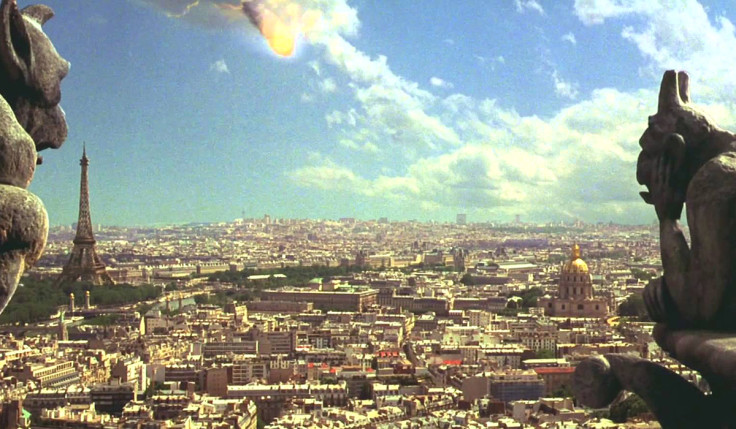Armageddon vs Deep Impact: Astronomer Picks Holes In Blockbuster Science

In 1998, two Hollywood blockbusters threw immense asteroids at Earth and showed us what might happen.
Both Armageddon and Deep Impact see humanity attempt to alter the path of those asteroid using nuclear weapons. Only in Michael Bay's Armageddon, the job of doing so falls to a ragtag crew of all-American deep-sea oil drillers rather than astronauts, scientists and experts.
It's fair to say realism isn't particularly prevalent in either feature, especially Bay's more gung-ho picture, but now an astronomer has detailed exactly what is scientifically wrong with each.
Phil Plait, who also writes a column for Slate.com called Bad Astronomy, spoke at HawaiiCon (via LiveScience.com), a science, sci-fi and fantasy convention on the US tropical isle. During one of his talks, he showed a clip from Bay's film in which Bruce Willis struggles to detonate their nuke.
"There are more mistakes in that clip than video frames," Plait said. "In order to blow up an asteroid the size of the one in the film, the bomb would have to explode with the same amount of energy as that produced by the sun."
If such a weapon were even possible, Plait said: "It would be way more dangerous than the asteroid itself."
The astronomer said Deep Impact was more realistic, particularly in regard to the mega tsunami that destroys the American eastern seaboard. That said, it still has its fair share of inaccuracies.
Deep Impact's mission to blow the asteroid off course (rather than blow it apart like Armageddon) fails and its crew decide on a suicide mission to save the day. They do so, causing the bigger, extinction-level asteroid to break up after the smaller one had made impact and caused the tsunami.
These small fragments burn up in the Earth's atmosphere but, according to Plait, this would not happen and would still pose a threat to life on Earth.
Maybe he is nit-picking but when you're an astronomer watching films about space, you don't want to miss a thing.
© Copyright IBTimes 2025. All rights reserved.






















